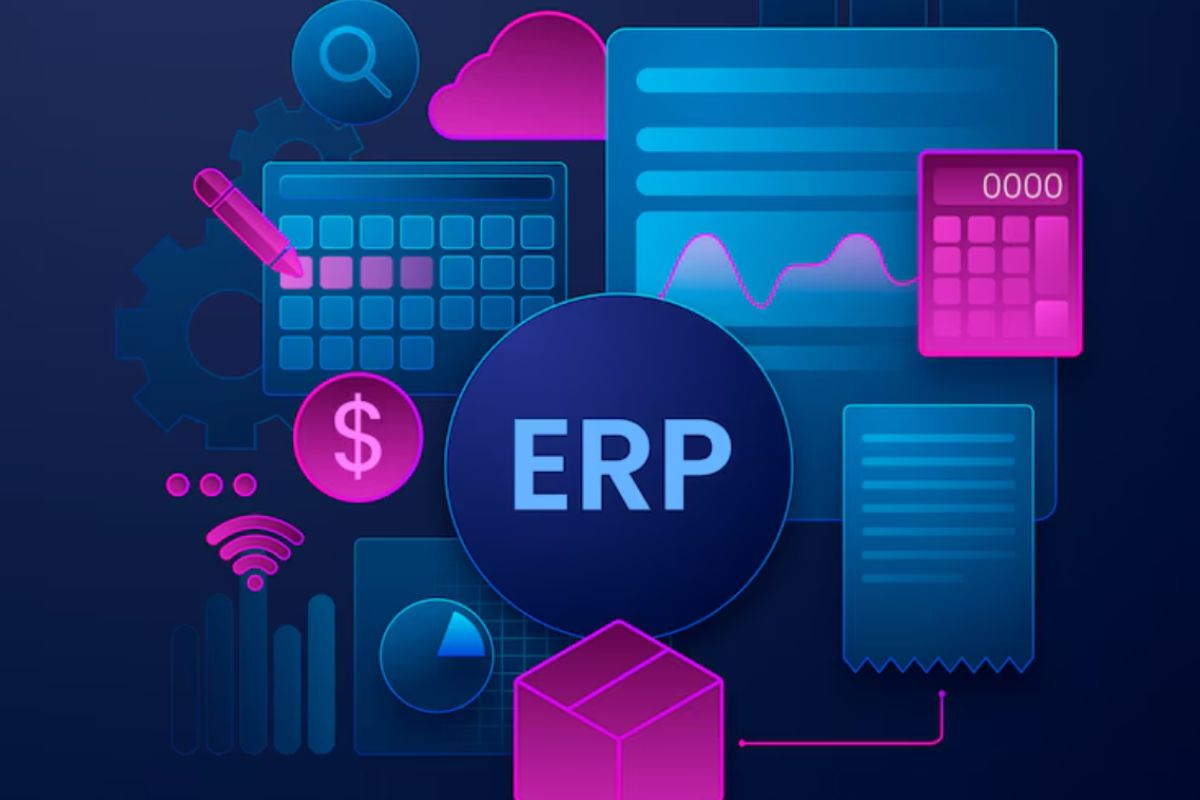In the manufacturing landscape, it is no longer sufficient to be ahead of competition by producing efficiently. One must predict and adapt to future requirements. That’s where Artificial Intelligence (AI) and Predictive Analytics come in; they are the new combination reshaping traditional manufacturing ERP.
Understanding the Evolution
Traditional ERP systems have been the backbone for manufacturing operations streamlining processes, resources management and efficiency optimization but have often remained reactive because decisions were made based on historical data exclusively.
The approach although useful doesn’t capture the needed agility in today’s fast paced environment. Predictive analytics combined with AI change everything.
Manufacturers can expect future trends, pinpoint potential bottlenecks and optimize processes in real time by tapping into huge volumes of datasets and using sophisticated algorithms. This transfers manufacturers from hindsight to foresight enabling them make proactive choices that keep them above all competitive pressures.
The AI-Powered Advantage
AI brings a multitude of advantages to predictive analytics within ERP for manufacturing industry:
Data-driven Decision Making
The usage of AI allows manufacturers to assess large quantities of data coming from different sources in an instant manner. Data provided by AI algorithms ranges anywhere from market trends to production line sensors’ information allowing one to take action based on this information, enabling informed decision-making at every level.
Predictive Maintenance
If unplanned downtime is not properly managed, it can be a source of disruption in manufacturing processes and cause huge losses resulting from reduced productivity or even increased costs.
By using AI-based predictive analytics, likely breakdowns can be anticipated prior to their occurrence. This way broken equipment gets fixed beforehand, for instance through maintenance that is done before a problem happens.
Optimized Inventory Management
Manufacturing companies often face the challenges of stockouts and overstock situations. The accuracy of demand forecasting by AI-driven predictive analytics is higher as compared to traditional approaches. Thus it assists to reduce carrying costs while optimizing inventory levels.
Enhanced Supply Chain Visibility
AI allows manufacturers to have real-time visibility into their supply chains which are complex and involve many parties with multiple points of failure. Therefore, manufacturers are given an opportunity to see and act on any emerging risks or optimization chances as well as delivering supplies just-in-time.
Quality Assurance
In manufacturing industry, maintaining the quality of products is very important. The use of AI algorithms enables early detection and intervention in relation to problems associated with production data analysis such as patterns or anomalies ensuring consistent product quality.
Case Studies in Action
Several pioneering companies are already reaping the benefits of AI-powered predictive analytics in manufacturing ERP:
General Electric
By means of AI powered predictive maintenance for its airplanes engines engines GE Aviation operates upon this technology for areas like aviation equipment servicing etc.
Analyzing sensor data in real time helps GE identify issues that may lead to major problems if left unattended, thus maximizing fleet efficiency by minimizing time wastage due to unscheduled repairs.
Toyota
Using AI Toyota improved its inventory management within production process operations. With the help of its artificial intelligence capability Toyota will be able predict changes in market demands and adjust its production accordingly thereby reducing excess stocks at hand, reducing waste and improving resource utilization.
Siemens
Quality control at Siemens’ manufacturing operations are improved by AI. It helps the company identify defects early in production processes and minimize rework thus ensuring quality.
Challenges and Considerations
While the potential of AI-powered predictive analytics in manufacturing ERP is vast, it’s not without its challenges:
Data Quality
The effectiveness of an AI algorithm is dependent on the data it was trained on. To succeed in predictive analytics, data precision and steadfastness must be guaranteed.
Integration Complexity
The process of embedding AI into existing ERP systems can be complicated and time-consuming. They should have a proper plan of how to implement that to avoid disruptions.
Ethical Considerations
It will become increasingly important for manufacturers to consider concerns like privacy and bias in algorithms when AI is incorporated into production processes. When creating their artificial intelligence models, manufacturers need to have accountability and transparency as top priorities.
Skill Gap
High demand for AI skills but with limited supply creates scarcity in labour resources. Therefore, manufacturers often face challenges when trying to recruit talented professionals having capabilities necessary for designing new predictive analytics solutions based on AI.
End Note
The intersection of AI and predictive analytics is where manufacturing ERP is headed. When paired with forecasting for real-time optimization, this technology gives businesses the ability to capitalize on volatile markets.
However, this calls for more than simply technology—rather, it calls for a strategic attitude, a dedication to making decisions based on data, and an openness to adapt.
The potential for innovation and the possibilities are endless as manufacturers set off on their AI journey. Now is the perfect moment to use AI’s predictive analytics capabilities in ERP.
















